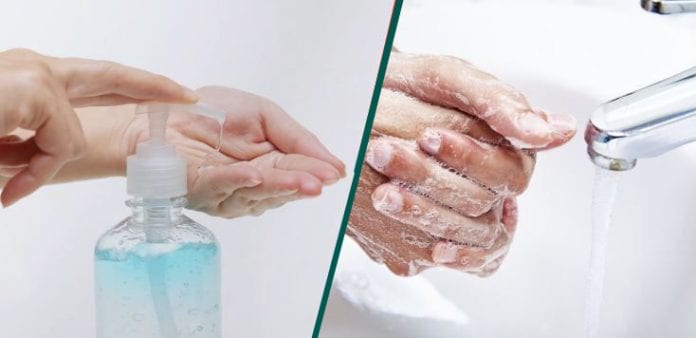The widespread and lethal effects of coronavirus disease highlighted the importance of good personal hygiene in preventing the spread of COVID-19. Health experts have notably reiterated the need to keep hands clean at all times to limit the transmission of the virus and bacteria to others.
Medical experts recommend sanitizing your hands, through the use of hand sanitizers and handwashing with soap and water. Hand sanitizer, in particular, has become a must for people on the go as it is more accessible and portable than hand soap as a disinfectant. According to University of Southern California Keck Medicine medical director of infection prevention and antimicrobial stewardship, Neha Nanda, hand sanitizer allows people to disinfect their hands anytime to limit the possibility of transmitting both viral and bacterial infections.
Following we discuss eight key points around the topic of hand sanitisers versus hand soaps and how they play an important role in protecting us from harmful bacteria and viruses;
Table of Contents
- What are Bacterial Infections?
- Different Ways Bacterial Infections are Transmitted
- What Are Viral Infections?
- Various Modes of Transmission of Viral Infections
- Benefits of Hand Washing with Soap and Water
- How to Wash Your Hands with Soap and Water Properly
- The Benefits of Hand Sanitizer in Preventing Viral and Bacterial Infections
- Other Tips to Protect Yourself Against Viral and Bacterial Infections
What are Bacterial Infections?
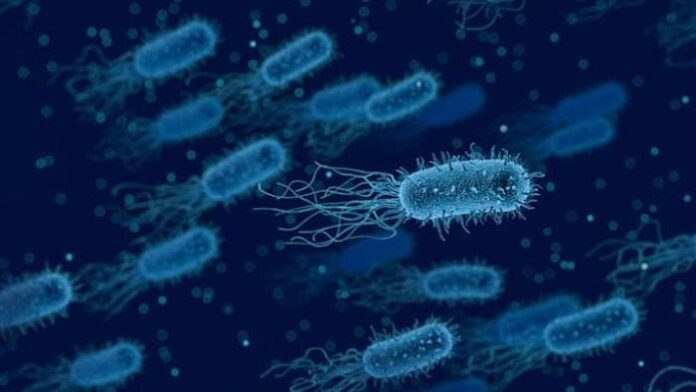
Bacterial infections are the proliferation or attacks of harmful bacterial strains on or inside your body. These pathogenic bacteria can infect any part of your body and may cause various diseases if your immune system cannot prevent them. Among the most common bacterial illnesses are gonorrhea, bacterial food poisoning, urinary tract infection, bacterial meningitis, and tuberculosis.
Different Ways Bacterial Infections Are Transmitted
The majority of infections caused by bacteria are contagious, meaning they can spread to and affect other people. You should know the various ways in which bacterial infections can affect you, so it is necessary to take precautionary measures to protect yourself. Here are some ways bacterial infections are transmitted from person to person:
- Eating contaminated food
- Drinking contaminated water
- Touching, kissing, or close contact with people who have bacterial diseases
- Mother to child transmission during pregnancy and childbirth
- Hand contact or holding of contaminated surfaces, like faucets, doorknobs, and handrails and touching your face, mouth, and nose with your contaminated hand.
- Exposure to the body fluids of an infected person through sexual intercourse or when he/she sneezes or coughs.
- Bites from insects carrying the bacteria
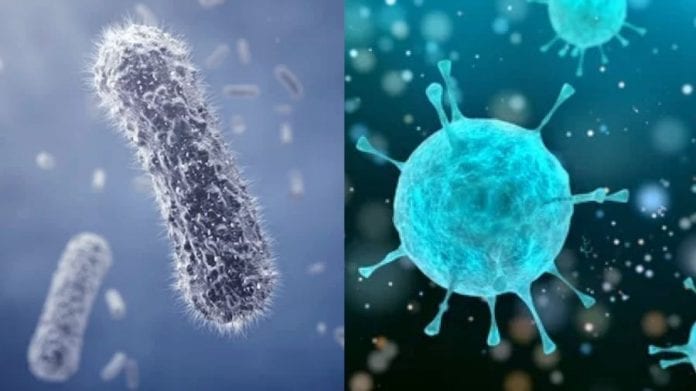
What Are Viral Infections?
Viral infections are the diseases caused by viruses, which are parasitic microorganisms that can attack your body cells. Upon entry to your body, they will use your cells to grow and regenerate. Some viruses may also kill your cells to reproduce and multiply.
Viruses can attack various parts of your body like the liver, skin, brain, reproductive system, and respiratory system. Virus infection can leave your body susceptible to diseases like influenza, gastroenteritis, chickenpox, meningitis, warts, human immunodeficiency and measles.
The Covid-19 disease is also caused by a virus called coronavirus. Coronavirus is more lethal and contagious than previous strains and other viral infections, so extra precautions to keep yourself and your family safe are needed. Seek immediate medical help or contact emergency medical services if you or your loved ones experience these symptoms:
- Fever
- Dry cough
- Shortness of breath
- Bluish lips
- Difficulty breathing
- Tightness or pain in the chest
- Severe fatigue
Various Modes of Transmission of Viral Infections
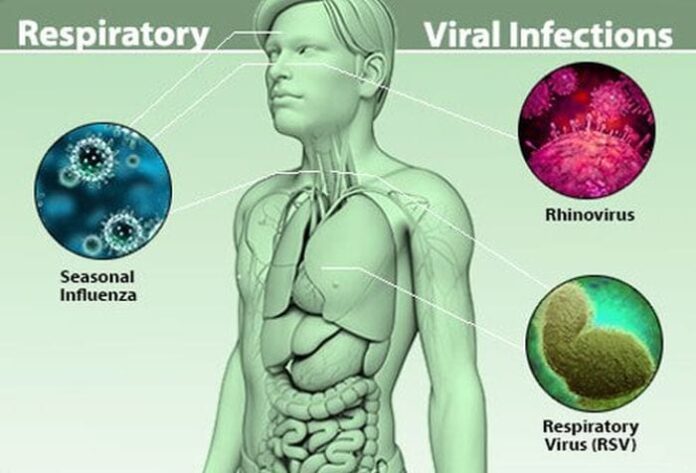
There are also different ways in which viral diseases can be transmitted from one person to another. It is essential to know these modes of transmission to avoid these viral illnesses. Among the ways viral infections are transferred are:
- Close exposure to people with the infection
- Contact or entry of an infected person’s body fluids to your body when he/she coughs or sneezes.
- Touching contaminated surfaces and touching your mouth, nose, or face with contaminated hands.
- Mother to child transmission during pregnancy or childbirth.
- Eating contaminated food.
- Drinking contaminated water.
- Bites from infected insects, like mosquitoes.
Benefits of Handwashing with Soap and Water
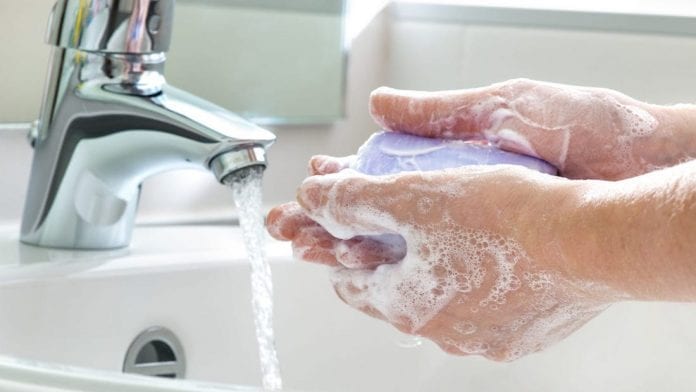
According to medical experts, using hand soap and water to clean your hands is the gold standard when it comes to maintaining proper hand hygiene. According to New York-based internist, gastroenterologist, and adjunct professor Niket Sonpal, the United States Centers for Disease Control and Prevention (CDC) and the majority of medical professionals advocate proper and frequent handwashing practices to prevent the spread of infections. It is essential to maintain cleanliness of the home and it’s surroundings to help prevent the spread of viral and bacterial diseases.
Here are some of the benefits of washing your hands with soap and water to your health:
- The regular use of hand soap can prevent intestinal diseases like diarrhea. It also helps avoid the condition called small intestinal bacterial overgrowth (SIBO).
- Proper handwashing establishes a safer environment in various workplaces, particularly in food manufacturing and hospitals. These facilities should also provide other forms of disinfection like a soap dispenser, hand sanitizer, and special waste bin.
- Handwashing reduces the occurrence of common eye infections, like blepharitis, keratitis, stye, conjunctivitis and pink eye.
- Proper handwashing techniques effectively kill or remove bacteria and viruses from your hands.
- It obstructs viruses, fungi, and bacteria that can cause respiratory tract infections. Among the most common symptoms of respiratory infections are runny nose, nasal discharge, sneezing, nasal congestion, and coughing.
How to Wash Your Hands with Soap and Water Properly
Although washing your hands is easy; there are several steps recommended by the CDC to ensure all germs are eliminated. Here are the five steps to follow every time you wash your hands:
- Open the tap and wet your hands with warm or cold running water.
- Apply soap and lather your hands by rubbing them together to form bubbles. Make sure to rub the back of your hands, between your fingers, and under your nails.
- Clean your hands thoroughly by scrubbing it with soap for at least 20 seconds.
- Rinse your hands with the running water, rinse and close the faucet.
- Use a clean towel or an air dryer to dry your hands.
Benefits of Hand Sanitiser in Preventing Viral and Bacterial Infections

A hand sanitizer is effective in eliminating bacteria and viruses from your hands. According to PlushCare internist Linda Anegawa, the CDC is recommending a three-step approach for the proper use of hand sanitizer. The steps are: applying a liberal amount in your hand, spreading it in your palms to cover all surfaces, and rubbing palm to palm with interlacing fingers until your hands are dry.
Meanwhile, Sonpal recommended the use of a hand sanitizer with at least 60% alcohol content to enhance its effectiveness in killing germs. On the other hand, the United States Food and Drug Administration advised consumers to buy a hand sanitizer with up to 95% isopropanol or ethanol content. You may use a hand sanitizer product like Sure Shield Hand Sanitizer available from Zexa to disinfect your hands.
There are several advantages of using hand sanitizer as a preventive measure against infections. Here are some of them:
- A hand sanitizer needs less time to apply than handwashing.
- If you are on the go regularly, you can place it in your purse or pocket.
- A hand sanitizer has the quick-acting capability to disinfect your hands and kill microorganisms, such as bacteria and viruses.
- A hand sanitizer can enhance the texture of your hands’ skin and make it smoother and softer.
- A hand sanitizer does not promote antimicrobial resistance.
Other Tips to Protect Yourself Against Viral and Bacterial Infections

Bacterial and viral infections can make you sick and can even lead to your death. Therefore, you need to adopt strategies to avoid these infections and protect the other members of your family against them. Here are some additional recommendations on how to protect yourself against bacteria and viruses:
- Maintain the cleanliness of your home and your environment. Conduct regular cleaning and disinfection of your home and surrounding areas outside the house.
- Always practice good personal hygiene. Refrain from touching your nose, mouth, or face if your hands are dirty. Also, avoid sharing personal items, such as toothbrushes, eating utensils, and drinking glasses.
- Avoid having multiple sexual partners to lessen your risk of contracting sexually transmitted diseases (STD). Make sure to adopt safe sex practices, like wearing a condom and avoiding sex while under the influence of alcohol or drugs. Also, you may undergo regular checkups for STDs.
- Vaccinate yourself and your children for protection against vaccine-preventable illnesses, such as tetanus, whooping cough, measles, and influenza. You may consult with your family physician about the available vaccines for your family.
- Refrain from roaming around when you are sick to prevent the spread of your disease to other people. If there is a need to go out, make sure to wash your hands and wear a mask. If you cough or sneeze, use a tissue or the crook of your elbow to suppress the spread of germs.
- Protect yourself against insect bites by wearing long-sleeved shirts and pants when possible, and use insect repellents to kill or drive away insects, like ticks and mosquitoes.
Viruses and bacteria are a serious threat to your life and health. The covid-19 pandemic is an example of how devastating these threats can be. By practising safety strategies, like frequent handwashing and using hand sanitizer, you can protect yourself and other people from bacterial and viral infections.
